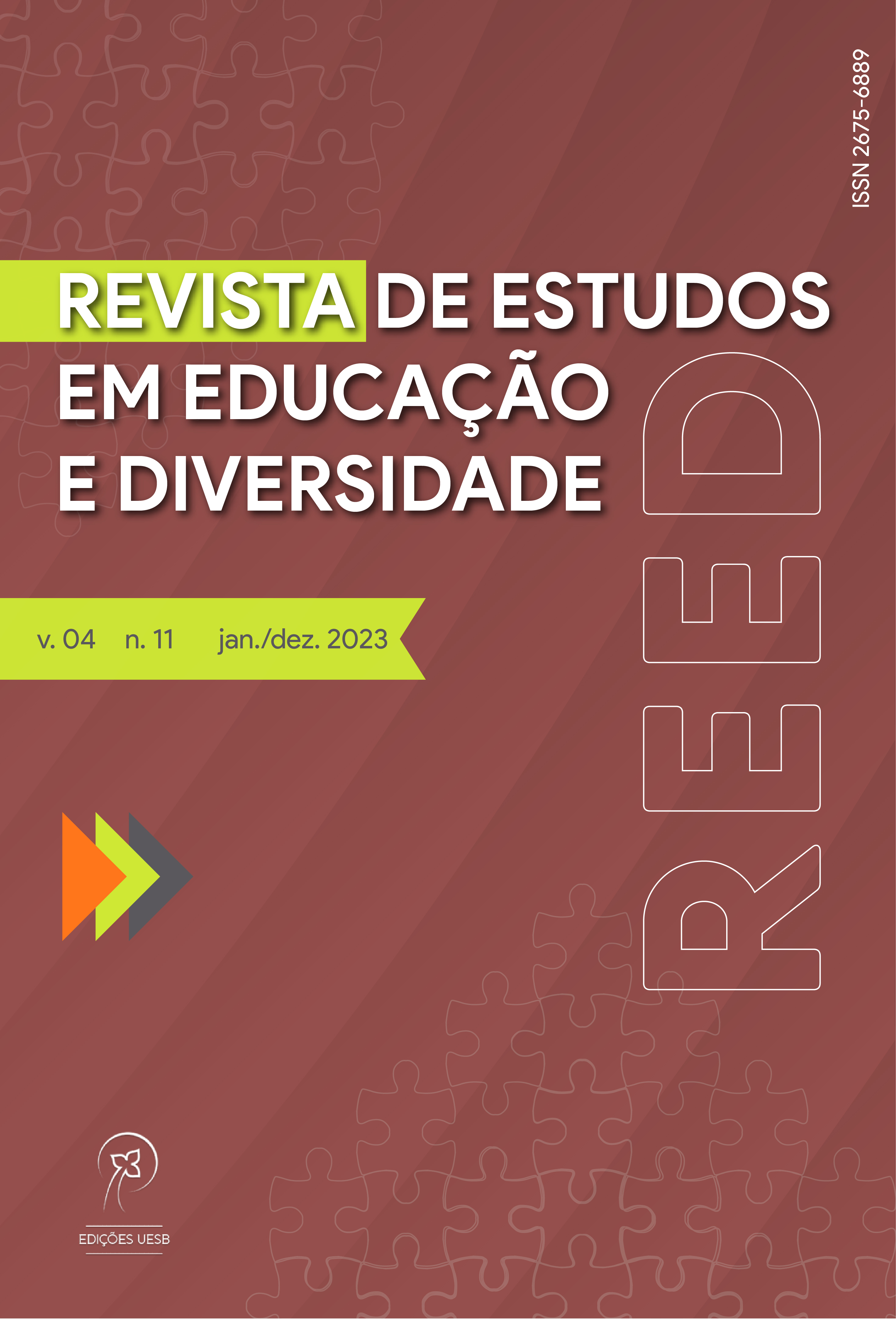Academic performance and sleep: a study with undergraduate students from the Teacher Training Center (CFP) of the UFRB
DOI:
https://doi.org/10.22481/reed.v4i11.14001Keywords:
sleep quality, undergraduates, academic performanceAbstract
This article seeks to understand the relevance of sleep quality in the academic life of students in the undergraduate courses at the Teacher Training Center of the Federal University of Recôncavo da Bahia (UFRB), with a focus on its impact on academic performance and general well-being. In the future, we intend to promote the problematization and awareness of healthy sleep practices in order to optimize students' academic performance and quality of life. From this perspective, university life for many students brings a series of challenges that affect their physical and emotional health. Some studies have shown that the overload of academic activities interferes with sleep quality, which directly influences academic performance. Therefore, understanding the effects of an intense routine and its effects on the quality of life of undergraduates is important. In view of this, this research is qualitative in nature, in which data was obtained by means of a semi-structured questionnaire answered by 63 undergraduates from the Chemistry, Physics, Mathematics, Languages, Philosophy, Physical Education and Pedagogy courses at the Teacher Training Center of the Federal University of Recôncavo da Bahia CFP-UFRB. The analysis methodology was based on Content Analysis, in which we listed three thematic categories a priori: a) impact of sleep on academic performance; b) strategies for improving sleep quality and c) motivation and involvement of the academic community in sleep issues. In general, the analysis shows that most of the participants feel overloaded with their academic responsibilities, making it difficult to maintain a regular sleep pattern. These difficulties can be attributed to a rigorous academic load and other factors such as high expectations of academic performance. In addition, the majority of students say they have never attended lectures, events or mini-courses on sleep, thus suggesting the need for more educational initiatives to address this problem.
Downloads
References
ARAÚJO, Mayonara Fabíola Silva et al. Qualidade do sono e sonolência diurna em estudantes universitários: prevalência e associação com determinantes sociais. Revista Brasileira de Educação Médica, v. 45, 2021.
ARRAIS, Paulo Sérgio Dourado et al. Prevalência da automedicação no Brasil e fatores associados. Revista de saúde pública, v. 50, 2016.
AZEVEDO, Maria Helena Pinto et al. Hábitos De Sono Em Universitários «a Estudar Fora De Casa. International Journal of Developmental and Educational Psychology, v. 2, n. 1, p. 253-260, 2011.
BARDIN, Laurence. Análise de conteúdo. São Paulo: Edições 70, 2011.
BARROS, Marilisa Berti de Azevedo et al. Relato de tristeza/depressão, nervosismo/ansiedade e problemas de sono na população adulta brasileira durante a pandemia de Covid-19. Epidemiologia e Serviços de Saúde, Brasília, DF, v. 29, n. 4, e2020427, set. 2020.
BOGDAN, Robert; BIKLEN, Sari. Investigação qualitativa em educação: uma introdução à teoria e aos métodos. São Paulo: Porto, 1994.
CARVALHO, Maria Eulina Pessoa de; RABAY, Glória. Usos e incompreensões do conceito de gênero no discurso educacional no Brasil. Revista Estudos Feministas, v. 23, n. 1, p. 119-136, 2015.
CARVALHO, Marilia Gomes; CASAGRANDE, Lindamir Salete. "Mulheres e Ciências: desafios e conquistas". Interthesis: Florianópolis, v. 8, p. 20-35, 2011.
CARVALHO, Thays Maria da Conceição Silva et al. Qualidade do sono e sonolência diurna entre estudantes universitários de diferentes áreas. Revista Neurociências, v. 21, n. 3, p. 383-387, 2013.
CREPALDI, Tânia Oliveira Mendes; CARVALHAIS, José Domingos de Jesus. A contribuição da má qualidade do sono na qualidade de vida no trabalho de professores: uma revisão. Brazilian Journal of Development, v. 6, n. 10, p. 75044-75057, 2020.
DIAS, Érika. Educação, a pandemia e a sociedade do cansaço. Ensaio: avaliação e políticas públicas em Educação, v. 29, p. 565-573, 2021.
LIMA, Daniella Moreira; FIGUEIREDO, Vanessa, Catherina Neumann. Desgaste psíquico e sobrecarga na universidade pública. Revista GeoPantanal, v. 16, n. 31, p. 165-181, 2021.
MEDEIROS, Glenia Junqueira Machado et al. Qualidade do sono dos estudantes de medicina de uma faculdade do sul de Minas Gerais. Revista brasileira de educação médica, v. 45, 2021.
PORTILLA-MAYA, Sonia de la et al. Qualidade de sono e sonolência diurna excessiva em estudantes universitarios de diferentes domínios. Hacia la Promoción de la Salud, v. 24, n. 1, p. 84-96, 2019.
RABELO, Amanda Oliveira; MARTINS, António Maria. A mulher no magistério brasileiro: um histórico sobre a feminização do magistério. In: CONGRESSO LUSO BRASILEIRO DE HISTÓRIA DA EDUCAÇÃO, 6., Minas Gerais, 2006. Anais [...]. p. 6167-6176.
RICHARDS, Kyle. O sono: bom demais para perder. Traduzido por Elvira Sousa. Canadá: Babelcube Inc., 2017.
SILVA, Ademir Baptista et al. Distúrbios do sono. Revista Brasília Médica, p. 145-151, 2003.
VERRI, Fellipo Ramos et al. Avaliação da qualidade do sono em grupos com diferentes níveis de desordem temporomandibular. Pesquisa Brasileira em Odontopediatria e Clínica Integrada, v. 8, n. 2, p. 165-169, 2008.
Downloads
Published
How to Cite
Issue
Section
License
Copyright (c) 2023 Revista de Estudos em Educação e Diversidade - REED

This work is licensed under a Creative Commons Attribution 4.0 International License.
You are free to:
Share - copy and redistribute the material in any medium or format; Adapt - remix, transform, and build from the material for any purpose, even commercially. This license is acceptable for Free Cultural Works. The licensor cannot revoke these freedoms as long as you follow the terms of the license.
Under the following terms:
Attribution - You must appropriately give credit, provide a link to the license, and indicate if any changes have been made. You may do so in any reasonable way, but not in a way that suggests that you or your use is endorsed by the licensor.
There are no additional restrictions - You cannot apply legal terms or technological measures that legally restrict others to make any use permitted by the license.






